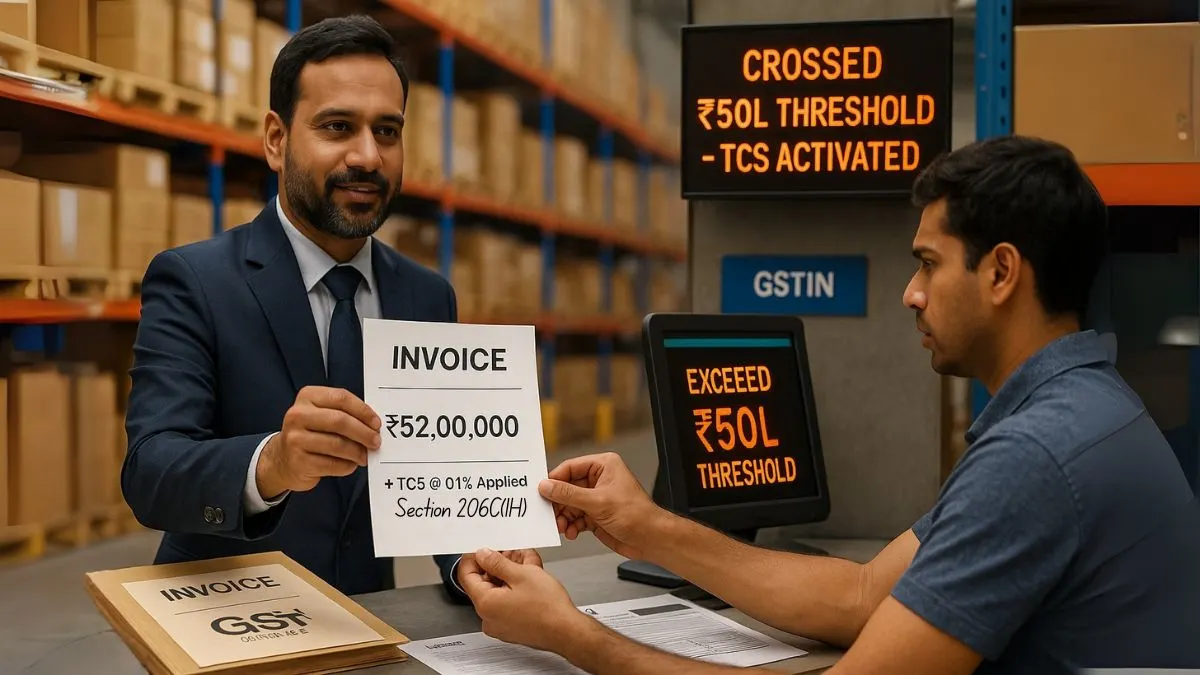
If you're planning to spend abroad—whether for holidays, education, or treatment—you likely came across Section 206C‑O. It’s a Tax Collected at Source (TCS) provision designed to ensure that remittances out of India are taxed at the point of transfer. This chapter is essential for anyone navigating the Liberalised Remittance Scheme (LRS) or booking an overseas tour package.
Let’s dive deep into what Section 206CO means, how it affects your foreign remittances, & ways to stay compliant—without letting tax become a barrier to your global plans.
What is Section 206C‑O?
Section 206C‑O (though often referred to generically as 206CO) is part of the Income Tax Act governing TCS on certain foreign remittances.
It mandates that an Authorised Dealer (typically your bank) or a seller of overseas tour packages must collect tax at source when you send money abroad or book an international holiday, once certain thresholds are crossed.
Who Needs to Collect TCS Under This Section?
There are two parties involved:
- Authorised Dealers (ADs) – usually banks or forex providers.
- Tour package sellers – companies selling abroad travel plans.
They act as agents to collect TCS before allowing remittance or completing the booking.
When Does It Apply? Threshold Limits & Rates
Overseas Remittances under LRS:
- Effective April 1, 2025, the annual threshold is ₹10 lakh.
- If your total foreign remittances exceed ₹10 lakh, TCS of 20% applies on the excess amount
Overseas Tour Packages:
- Any single package costing over ₹10 lakh triggers a TCS of 5.
Who Gets Exempted?
Certain remittances don’t attract TCS:
- Education loans from financial institutions under Section 80E
- Transfer of funds for medical treatment or education (if funded via loan).
- Situations where TDS is already deducted under another section.
- Specified government entities like embassies, public sector bodies, etc.
How Is TCS Collected?
The AD or tour operator:
- Checks your annual remittance/bookings.
- Applies TCS on the amount above ₹10 lakh at 20% for personal remittances, or 5% for travel packages.
- Deposits the TCS amount with the government."
- Issue you a TCS certificate for your ITR.
What Happens If You Don’t Provide PAN/Aadhaar?
Failing to provide PAN or Aadhaar means TCS jumps to higher rates under Section 206CCA – often double the standard rate.
Thus, submitting your PAN/Aadhaar is important to avoid unnecessary deductions.
Claiming TCS Refund in ITR Filing
Collected TCS can be claimed as credit against your total tax liability when you file your ITR. If your actual tax due is less than the TCS, the excess gets refunded after assessment.
Penalties for Non‑Compliance
Non‑collection, late deposit, or non-furnishing TCS certificates can trigger:
- Interest at 1% per month
- Penalties under Sections 271C & 276BB
- Potential prosecution in severe cases
So compliance isn't just a suggestion—it’s mandatory.
Real‑World Example
Suppose you transfer ₹12 lakh abroad under LRS. The first ₹10 lakh is TCS-free. The rest of ₹2 lakh gets taxed at 20%. So, you'll pay ₹40,000 TCS at the bank before sending money.
Similarly, if you book an overseas tour package worth ₹15 lakh, the travel agent will collect ₹75,000 as TCS upfront.
How to Stay Compliant?
- Always provide PAN/Aadhaar to avoid high TCS.
- Track your annual remittances/bookings.
- Keep the TCS certificates safe for ITR.
- Monitor changes—like threshold updates—especially post‑April each year"
- Use TCS credit smartly to reduce the actual income tax due.
Final Thoughts
Section 206C‑O has made foreign remittances and travel bookings more transparent and traceable. While paying TCS upfront may pinch, it gets refunded or adjusted. And for the government, it’s a pre-emptive way to capture taxable overseas spending.
For taxpayers, awareness and timely compliance mean no surprises later.
Planning a foreign transfer or international trip? Don't let TCS catch you off guard! At Callmyca.com, our experts guide you through TCS rules, PAN/Aadhaar filings, and tax credits. Enjoy your travel with total tax peace—start now!











